Crossing a Sea of Hope:
Women, Migration, and Epic in Elizabeth Barrett Browning’s Aurora Leigh
“And anyway/I’d never write good poetry because what did/I know about war, death, the gods/and the founding of countries?/But you see, Dad, what I really want to read/and hear is stuff about us, about now,/about Nubians in Londinium, about men/who dress up as women, about extramarital/peccadilloes, about girls getting married to older men and on that note,/in the words of the great god Pliny,/the one too early and the other too late (ahem!)./And I don’t care about the past/and I ain’t writing for posterity—/he also says that I should write for readers/five centuries hence./Well, I’m a thoroughly modern miss/and who knows what life will be like then.”
-Bernardine Evaristo, The Emperor’s Babe
Elizabeth Barrett Browning is lauded to this day for her epic poetry, the most famous of which is Aurora Leigh. With its modern female protagonist, cross-continental migration, and vivid imagery, the poem proves more than a simple exercise in copying Homeric tradition. The poem provides commentary relevant to this day about women’s voices and roles in literature, especially in regards to their journeys and searches for home. In her feminist critique of the epic tradition, Barrett Browning centers women in their migration as their own kinds of heroes, immortalizing their identities and their struggles and their searches for home as intrinsic to modern literature. Aurora Leigh’s charting of migration thus serves not only as a way of solidifying Barrett Browning’s position in the western canon, but as a call to action for other women poets to write of their own experiences in distinctly feminine forms, knowing they carry the same significance as the battles and journeys away from home in Homeric epic.
Aurora Leigh’s protagonist, Aurora Leigh, narrates the poem as a migrant herself, and Barrett Browning uses imagery of water and of the sea in conjunction with Aurora’s migration to connect it with the epic tradition. In Book I of the poem, Aurora recounts how she was born in Florence to a Tuscan mother and an English father. After the deaths of both her parents, Aurora must go to England to live with an aunt, leaving her beloved Italian nurse, Assunta, behind. She remembers the way “the bitter sea/Inexorably pushed between us both” (Barrett Browning, 1.235-236), separating Aurora from Assunta, but also from what she calls “my Italy,” from “the white walls, the blue hills” of her home (1.232). They are so different from her first sighting of England, where “the frosty cliffs/Looked cold upon [her]” (1.251). She has been forced from her home to go to a land where she is something of an alien. Even after living with her aunt for several years, others around her continue referring to her as “the Italian child” (1.495). Thus, Aurora lives permanently marked as an outsider, as an immigrant in England. Later, she yearns for Italy, articulating a possessiveness again for her homeland: “Are you ’ware of me, my hills,/How I burn toward you?” (5.1267-1268) She personifies Italy, wondering whether it can feel her yearning “As sleeping mothers feel the sucking babe/And smile” (5.1270-1271). The equating of Italy with a mother figure might remind the reader of the line earlier in the poem, when Aurora speaks, as a result of the loss of her mother, how she “felt a mother-want about the world” (1.40). Just as she has been orphaned, Aurora’s migration leaves her with a void and a longing for a homeland to which she cannot really return.
The poem’s epic form already recalls the epic tradition, but Barrett Browning also provides opportunities to make direct comparison between Aurora Leigh and epic heroes in more overt allusions in her verse. When Aurora travels to Italy with Marian and her son, they stop one night in Marseilles, Barrett Browning once again using sea imagery as Aurora describes the city:
“With all her ships behind her, and beyond,
The scimitar of ever-shining sea
For right-hand use, bared blue against the sky!” (7.450-452)
She compels one to pause over the lines with the alliteration of both “b” and “s” sounds. A “scimitar,” a sword with a curved blade used historically in Central Asian and Middle Eastern empires, immediately evokes stories of war. And when placed in the same line as the adjective “ever-shining” to describe the sea, the verse here reminds the reader of its historical presence as well as seafaring for the purpose of war. These are precisely the material of epic poems. If that were not enough, Aurora also recounts how that evening, she sits “between the purple heaven/And purple water” (7.453-454), thinking of Italy, noticing the nature around her acting as “ambassador for God” (7.466). Barrett Browning alludes to The Odyssey when Aurora mentions the mountains moving “the way of grand dull Odyssean ghosts” (7.470). The comparison at this moment feels apt. Just like Odysseus, Aurora has been journeying home. Her connection to God through nature, too, can be compared to Poseidon’s anger with Odysseus and his hubris that leads him to prolong Odysseus’s journey back to Ithaca. The comparison allows Barrett Browning to position Aurora as a kind of, or a character existing in response to the, epic hero through her migration. But, Barrett Browning also proves, as a woman in the modern age, Aurora makes for a very different kind of heroine.
In a 2020 article for the Sewanee Review, A.E. Stallings recalls a poetry workshop she has led for refugee women in Greece since 2015. The women originally come from places like Syria and Iraq, but almost all of them have traveled in boats from Turkey to the island of Lesbos in Greece. The significance of the geography of their journeys is not lost on Stallings; these women have crossed the same eastern Aegean featured in Homer’s epics. However, their stories, obviously, are enormously different from Ancient Greek warriors. These women have not traveled to fight a war. They have fled to escape it. Like in Aurora Leigh, the women’s poetry about their migrations heavily features imagery of the sea. The sea is a source of nightmares of the women, toward which so many refugees are driven, but from which so many of them do not return (Stallings 352). Yet they have crossed it, because despite the danger posed by traveling in the “overloaded and unseaworthy boats” (352), the journey is one “that can carry you to your future” (354). The women migrate for hope. Such hope is not unlike Aurora Leigh’s motivations for migration. She goes back to Italy out of hope of inspiration, and perhaps hope of resolving the “mother-want” that plagues her as an orphan and as an immigrant. Together, these women’s poems and Barrett Browning’s epic argue that even when crossing the same geographies as those historically traveled by men, their journeys have very different motivations.
Barrett Browning reinforces the difference between her epic and someone like Homer’s through her form. While poems like The Iliad traditionally contained twelve books, Aurora Leigh only has nine. Olivia Gatti Taylor astutely points out the recurrence of the number nine throughout Barrett Browning’s poem and its connection to the ninth months of gestation women experience when pregnant (Gatti Taylor 153), suggesting a clear connection between women’s experiences and the form in which Barrett Browning writes. In the poem itself, Aurora asks herself, “What form is best for poems?” (Barrett Browning 5.223) “Trust the spirit,” she advises her reader, to influence the form poetry takes. She urges one to look inward: “Inward evermore/To outward—so in life, and so in art/Which still is life” (5.227-229). One’s art or poetry ought to be a reflection of their own life, both in its content and in its outward appearance, or form. Such a mindset allows Aurora Leigh, a poem full of mothers and “mother-want,” to take the form of the distinctly womanly lived experience of motherhood. Thus, in Aurora Leigh, Barrett Browning either responds to the epic tradition or updates it to account for women’s lives.
Barrett Browning further breaks from the Homeric epic in her depiction of sexual violence. In The Iliad, as Stallings explains, several female characters appear as the companions of the epic’s male heroes. As it turns out, these “spear-brides” could more accurately be referred to as “sex slaves,” as they are the victims of the massacres of their cities, where heroes like Achilles murder all of the men before snatching up the women and distributing them to be raped (360). Of course, however, the narrative focuses on the men of these stories, rather than fully acknowledging the violence, both sexual and not, to which these women have been subject. Marian in Aurora Leigh acts almost as a direct response to this lack of regard for female victims of sexual violence. When Aurora sees her child and accuses Marian of having been seduced into a child of wedlock, Marian immediately, vehemently corrects her:
“What, ‘seduced’’s your word?
Do wolves seduce a wandering fawn in France?
Do eagles, who have pinched a lamb with claws,
Seduce it into carrion? So with me” (6.766-769).
Marian not only compares herself to young, innocent animals, but compares the man who raped and impregnated her to predators. She repeats the word “seduce” several times, almost as if she is throwing it in Aurora’s face with its stupidity, like when one says a word so many times that it begins to lose its meaning. She emphasizes the violence that has been done to her here, the kind of violence and ruthlessness witnessed when a wild animal kills its prey. And if that were not overt enough, she states it plainly: “man’s violence,/Not man’s seduction, made me what I am” (6.1226-1227). Marian revolutionarily asserts herself as a victim of sexual violence. The verse here is reminiscent of Stallings’s reflections on the writing of Nadia Murad, a Yazidi woman from Northern Iraq who was captured by the Islamic State and forced into sexual slavery (365). Both of these women were removed from their homes and sexually assaulted—Marian to France, and Nadia to the Islamic State—and then migrate to escape such threats of violence. Modern poetry and women’s writing feature an almost reversal of the epic tradition. Whereas The Iliad and The Odyssey focuse on the stories of men and the atrocities—the raping and burning and pillaging—they are allowed in war, Aurora Leigh, and modern refugee women’s writing, give voices to the women against whom those atrocities have been committed.
Stallings, at one point in her article, when comparing the refugee women in her workshop to the women in Homer’s epics, describes what she calls “the epic present,” or the geography of epic still in use today as routes for migration (378). It is similar to the call-to-action Barrett Browning articulates in Aurora Leigh. “The critics say that epics have died out” (5.139), but Aurora disagrees. The trouble comes from not understanding the interaction between age and epic: “Every age/Appears to souls who live in’t (ask Carlyle)/Most unheroic” (5.155-157). Epic seems worthy of epic only because it is so far in the past. When it comes to writing a modern epic, all one need write is about regular people. After all, even Homer’s heroes, “They were but men—his Helen’s hair turned gray/Like any plain Miss Smith’s who wears a front” (5.247-148). Even the most beautiful woman of Troy was a regular woman who aged and died. Thus, in writing a modern epic, one must write of the modern age, no matter how ordinary it may seem. And as Aurora has said, if art is meant to reflect one’s own life, and when lives have changed so much, form, too, is subject to change. And part of that change should be the proliferation and popularization of the woman poet. Stallings gives an example of how Briseïs’s mourning Patroculus in The Iliad gives permission for the women around her to mourn, too, but “for their own cares” (373). In the same vein, Aurora Leigh, in making an epic of one woman’s journey, gives rise to other women poets, and pushes epic, and literature at large, to evolve. One day, Barrett Browning is sure, the western canon will be full of other thoroughly modern misses.
This paper represents my own work in accordance with University regulations.
Sophie García
Works Cited
Barrett Browning, Elizabeth. Aurora Leigh. Oxford: Oxford University Press, 1993. Originally published in London and New York in 1856.
Evaristo, Bernardine. The Emperor’s Babe. London: Penguin Books, 2001.
Gatti Taylor, Olivia. “Written in Blood: The Art of Mothering Epic in the Poetry of Elizabeth Barrett Browning.” Victorian Poetry 44 (2006): 153-164.
Stallings, A.E. “The Lyre of Eëtion: Lyric, Epic, War and Migration in the Eastern Aegean.” Sewanee Review 128 (Spring 2020): 349-379.
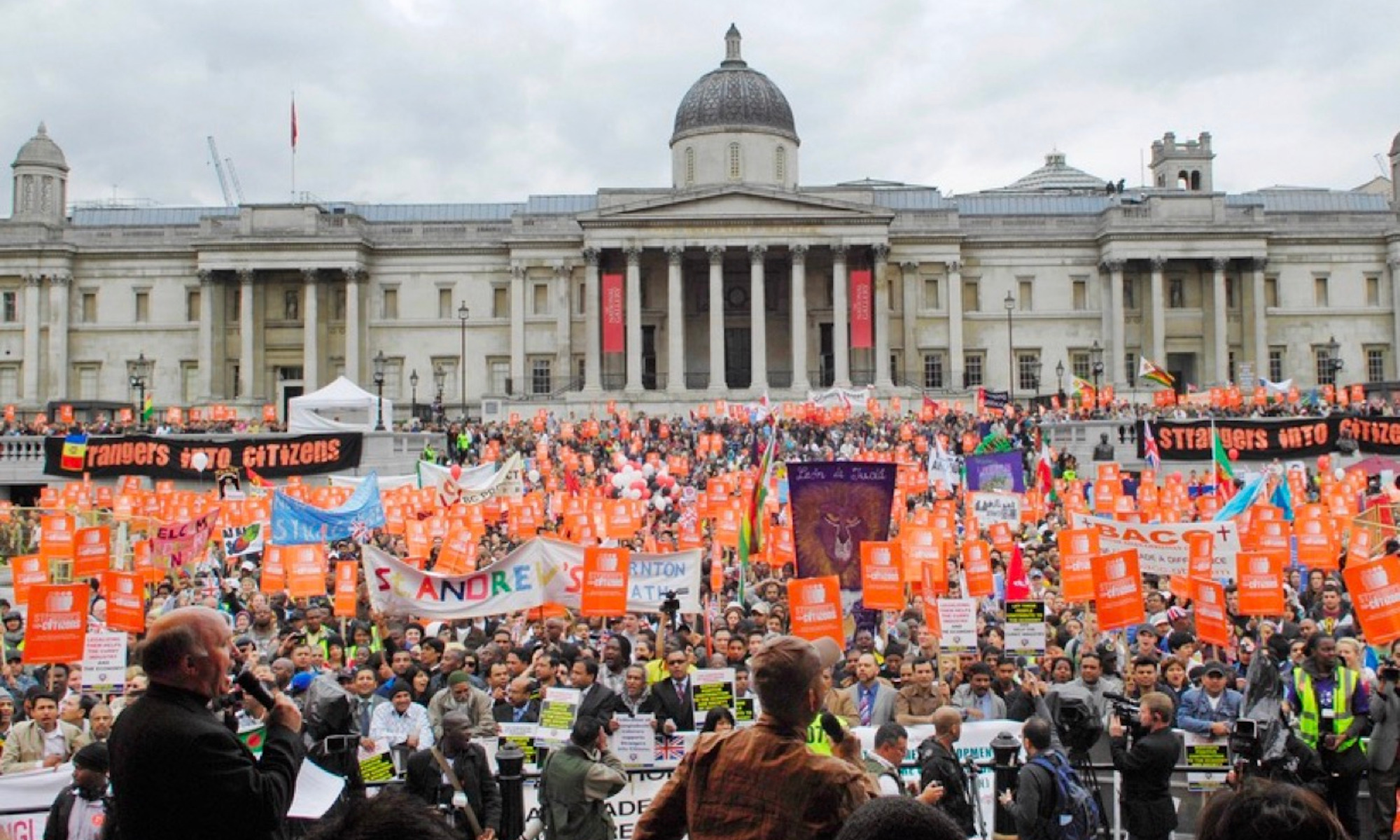
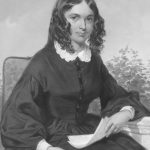
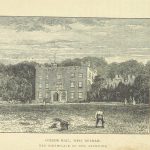
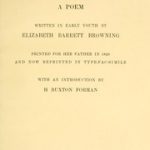

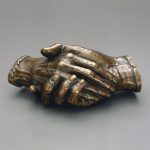

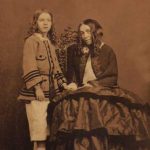

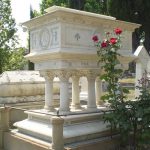

 In 1845, she began a passionate correspondence with Robert Browning. They were secretly married in St Marylebone Church in 1846. They then moved to Italy, settling in Florence for the rest of their lives with occasional visits to London and Paris. Barrett Browning’s poor health continued, and she suffered several miscarriages. Her son, Pen, was born in 1849. In 1853, she began writing Aurora Leigh, which was then finished and published in 1856. After more bouts of illness, several more poems, and four editions of Aurora Leigh, Elizabeth Barrett Browning died on June 29 in 1861 and was buried in the English Cemetery in Florence. Her Last Poems was published posthumously in 1862.
In 1845, she began a passionate correspondence with Robert Browning. They were secretly married in St Marylebone Church in 1846. They then moved to Italy, settling in Florence for the rest of their lives with occasional visits to London and Paris. Barrett Browning’s poor health continued, and she suffered several miscarriages. Her son, Pen, was born in 1849. In 1853, she began writing Aurora Leigh, which was then finished and published in 1856. After more bouts of illness, several more poems, and four editions of Aurora Leigh, Elizabeth Barrett Browning died on June 29 in 1861 and was buried in the English Cemetery in Florence. Her Last Poems was published posthumously in 1862.